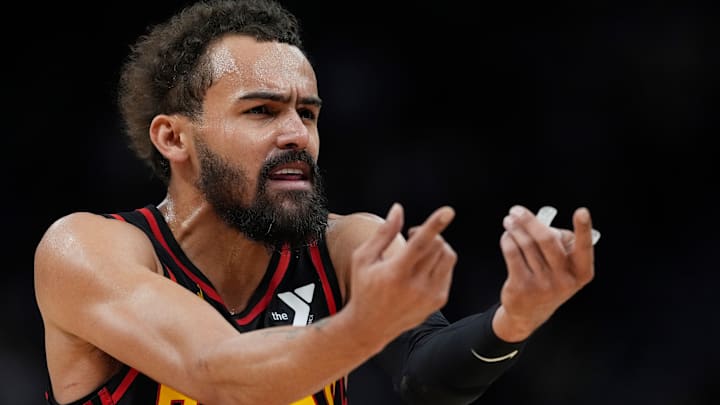The NBA's Collective Bargaining Agreement (CBA) is not typically a topic of interest among NBA fans. Like most labor negotiations, the terms of the CBA tend to be less noteworthy to the general public than the fact that both parties reached an agreement, thereby preventing a boycott or lockout.
This past CBA was different. The concept of the second apron was introduced as a measure to ensure parity among teams with different budgets. Teams like the Warriors and Nets had the financial firepower to blow through the luxury tax, assembling rosters that are too expensive for smaller market teams to compete with.
The second apron, however, was a mistake. At least that's what CJ McCollum, NBAPA president at the time of the agreement, thinks. McCollum said on the Young Man and the Three podcast that "you shouldn't be punished for drafting well," citing the Thunder as an example of a team that has built an exceptional roster but faces extreme financial and team-building consequences for their efforts.
The Atlanta Hawks are another team punished by the new CBA. Atlanta assembled a young roster full of talent, adding Jalen Johnson, Zaccharie Risacher, and Dyson Daniels to a roster built around Trae Young. Atlanta did remarkable work in acquiring all of these players while they were still on their rookie contracts, drafting Johnson and Risacher while adding Daniels through trade.
However, the Hawks have a serious problem heading into next season. Johnson's 5-year, $150 million deal begins this season, while Young and Daniels are set for big paydays next offseason. These three players could potentially earn over $140 million alone, with another $30 million tied up between Onyeka Okongwu and Nickeil Alexander-Walker. This leaves Atlanta in a difficult situation when constructing a roster long-term, having to pay Risacher and (hopefully) Kristaps Porzingis.
The second apron will screw over the Hawks if Young gets a supermax
Atlanta has assembled an elite 8-man rotation consisting of Young, Daniels, Risacher, Johnson, Porzingis, Luke Kennard, Alexander-Walker, and Okongwu. Assuming the Hawks retain Young, Daniels, and Porzingis, these eight players will be earning over $185 million annually.
If Young earns a supermax extension by making an All-NBA team, this number would rise to $215 million. This doesn't include Risacher's looming extension, which will likely add over $20 million to their salary bill.
The second apron will be set at $222 million for the 2026-27 season. This leaves Atlanta with only $8 million for the remaining 7 spots on the roster, which is impossible with the NBA's minimum salary.
Atlanta is not a superteam. The Hawks assembled a team "the right way" by drafting well and surrounding their franchise cornerstone with talented young players. Yet, if Young makes an All-NBA team this year (which seems likely given the talent on the roster), the Hawks will find themselves unable to pay all their players while maintaining roster flexibility.
It is unfair for the Hawks to have to ask Young, Daniels, or Porzingis to sign a contract below their value. Yet, this is the reality they face. If all goes well in Atlanta, the team will be a top-three seed with Young earning an All-NBA selection.
The Hawks should not be punished for this, and CJ McCollum knows it. Hopefully Saleh will continue his flawless record and navigate this situation well.
